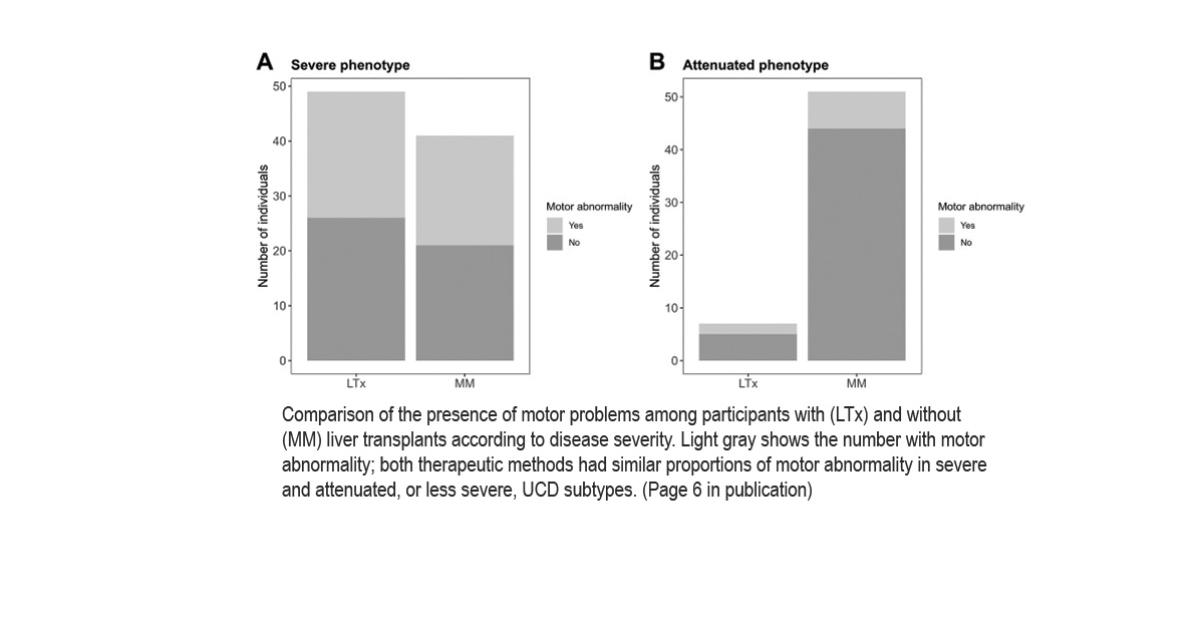Posset R, Garbade SF, Gleich F, Scharre S, Okun JG, Gropman AL, Nagamani SCS, Druck AC, Epp F, Hoffmann GF, Kölker S, Zielonka M; Urea Cycle Disorders Consortium (UCDC); European registry and network for Intoxication type Metabolic Diseases (E-IMD) Consortia Study Group. Severity-adjusted evaluation of liver transplantation on health outcomes in urea cycle disorders. Genet Med. 2024 Apr;26(4):101039. Epub 2023 Dec 3. PMID: 38054409.
Liver transplantation in urea cycle disorders (UCDs) helps stabilize metabolism and improve growth but doesn't seem to affect cognitive function compared to medical management. Further research into transplant-related outcomes and the long-term effects on brain health is needed.
Key Takeaways:
- Researchers studied the long-term effects of liver transplantation in 356 individuals.
- Metabolic stability improved after transplantation.
- Patients who received liver transplants generally had better growth than those treated with medical management alone.
- Neurocognitive outcomes were not significantly different in individuals who underwent liver transplant when compared to individuals who were managed medically and had comparable severity of UCD.
- The study did not assess factors like medical care access, medication, or dietary adherence. It also did not measure transplant-related outcomes such as survival rates or quality of life.
- More brain imaging studies are needed to understand the long-term effects of liver transplants on brain health.
This study looks at how liver transplantation affects health outcomes in people with UCDs. UCDs are usually managed with a special diet and medications, but when these treatments don’t control dangerous ammonia spikes, liver transplantation is considered. The study compared the long-term effects of liver transplantation with medical management in terms of metabolic control, growth, and cognitive outcomes.
- Metabolic Stability: After a liver transplant, patients showed no dangerous spikes in ammonia levels, suggesting that liver transplantation helps control hyperammonemia in people with UCDs.
- Higher Health Events Before Transplant: Patients who had a liver transplant experienced more hyperammonemic events before the procedure compared to those on medical management, indicating other factors may have influenced their health before the transplant.
- Growth: Patients who received liver transplants generally had better growth than those treated with medical management alone.
- Cognitive Outcomes: As assessed within the limitations of this study, there were no significant differences in cognitive outcomes between the transplant group and the medical management group.
However, the study didn’t assess factors like medical care access, medication, or dietary adherence, which could have affected the results. More studies are needed to understand the long-term effects of liver transplants on brain health. The study also didn’t measure transplant-related outcomes, such as survival rates or quality of life, leaving room for future research.


